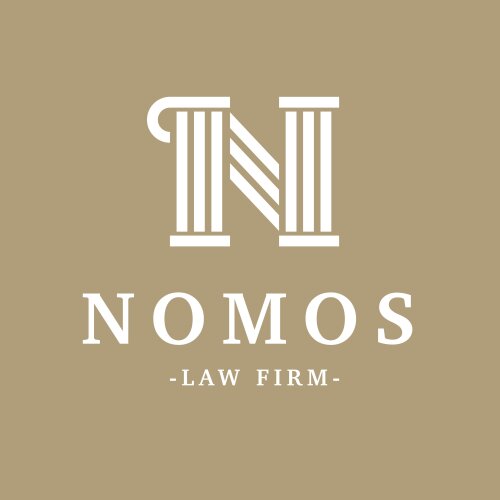Best Employment Rights Lawyers in Italy
Share your needs with us, get contacted by law firms.
Free. Takes 2 min.
Or refine your search by selecting a city:
List of the best lawyers in Italy
Italy Employment Rights Legal Questions answered by Lawyers
Browse our 1 legal question about Employment Rights in Italy and read the lawyer answers, or ask your own questions for free.
- I am being repeatedly bullied by a colleague at work
- I am being repeatedly bullied by a colleague at work and despite numerous attempts to get help from my supervisors, nothing has been done. I have also been bullied by my supervisors (lying to me - giving preferential treatment to others - giving me more work - not helped when... Read more →
-
Lawyer answer by Studio legale DSC
The repeated bullying you've experienced is a serious matter.Given the impact on your well-being and your supervisors' involvement, consider consulting an employment lawyer to discuss potential compensation claims like hostile work environment or retaliation.
Read full answer
About Employment Rights Law in Italy
Employment rights in Italy are governed by a comprehensive legal framework that aims to protect workers and regulate the relationships between employers and employees. The laws are primarily based on the Italian Constitution, the Civil Code, and various labor laws that establish the rights and obligations of both parties in the employment relationship. The legal framework covers aspects such as working hours, wage standards, health and safety conditions, anti-discrimination protections, and collective bargaining rights.
Why You May Need a Lawyer
There are several situations where you may need legal assistance regarding employment rights in Italy. Common scenarios include disputes over wrongful termination, discrimination in the workplace, unpaid wages, harassment, breaches of contract, and violations of collective bargaining agreements. Additionally, seeking clarity on complex legal rights or navigating the Italian legal system during disputes can be challenging without professional help. Lawyers specializing in employment law can provide the necessary guidance, negotiate on your behalf, and, if necessary, represent you in court.
Local Laws Overview
Italian employment law is heavily influenced by European Union directives and encompasses regulations that are both broad and complex. Key aspects include:
- Labor Contracts: Contracts can be permanent, fixed-term, or project-based, each with specific regulations.
- Working Hours: The standard workweek is 40 hours, with overtime pay applicable for additional hours.
- Minimum Wage: Although not set nationally, sectoral agreements usually establish minimum pay standards.
- Dismissal Protections: Employees are protected against wrongful dismissal through several legislative provisions, including mandatory written explanations and severance payments for unjust terminations.
- Discrimination: Laws prohibit discrimination based on factors such as gender, age, race, religion, and disability.
- Collective Rights: Italian law strongly supports union activities and collective bargaining, granting certain collective rights to worker representatives.
Frequently Asked Questions
What rights do employees have regarding employment contracts in Italy?
Employees have the right to receive a written contract detailing the terms of employment, including job responsibilities, salary, and working conditions. Contracts must comply with Italian labor laws and applicable collective agreements.
Are there laws protecting against workplace discrimination in Italy?
Yes, Italian laws strictly prohibit workplace discrimination based on gender, age, race, religion, sexual orientation, and disability, with protective measures enforced through both national legislation and EU directives.
What constitutes wrongful termination under Italian law?
Wrongful termination may occur when an employee is dismissed without a valid reason, such as redundancy or serious misconduct, or without following the prescribed procedural requirements, including notice and severance.
What are the rules regarding overtime pay in Italy?
Overtime is generally subject to additional pay, typically ranging between 25% and 50% above regular wages. National and sectoral agreements determine precise rates and conditions for overtime work.
How are collective bargaining agreements relevant to employee rights?
Collective bargaining agreements (CBAs) establish additional rights and conditions for various sectors, setting standards for wages, working hours, and other employment terms beyond legislative minimums.
What is the standard procedure for addressing workplace grievances?
Grievances should first be addressed internally through HR or appropriate management channels. If unresolved, employees can consult union representatives or pursue legal recourse through labor courts.
How is employee privacy protected concerning workplace monitoring?
Employees are protected by privacy laws that restrict surveillance and data collection without informing staff and ensuring transparency and legitimate business purposes.
Are there specific rights for parental leave in Italy?
Yes, both mothers and fathers are entitled to parental leave, with maternity leave typically extending to five months and paternity leave for a minimum period as prescribed by law or collective agreements.
What is the legal stance on workplace harassment in Italy?
Workplace harassment, including sexual harassment, is prohibited by law. Victims can report incidents to employers, seek union support, or pursue legal action if necessary.
Can foreign workers expect the same rights as Italian employees?
Yes, foreign workers with lawful employment contracts are entitled to the same rights and protections as Italian nationals, in line with equality and non-discrimination principles.
Additional Resources
For more information on employment rights, consider reaching out to governmental bodies like the Ministry of Labor and Social Policies. Trade unions, legal aid organizations, and non-profit groups like ACLI (Associazioni Cristiane Lavoratori Italiani) can also provide support and resources. The official Italian government website provides guides and FAQs for employees and employers regarding labor rights and obligations.
Next Steps
If you need legal assistance concerning employment rights, you should first compile relevant documents related to your employment, such as contracts, payslips, and correspondence with your employer. Consulting with a lawyer who specializes in employment law is an advisable next step. They can offer tailored advice, facilitate negotiations, or represent you in court proceedings. It is also beneficial to explore local and online resources to gain a better understanding of your rights and the legal processes involved.
Lawzana helps you find the best lawyers and law firms in Italy through a curated and pre-screened list of qualified legal professionals. Our platform offers rankings and detailed profiles of attorneys and law firms, allowing you to compare based on practice areas, including Employment Rights, experience, and client feedback.
Each profile includes a description of the firm's areas of practice, client reviews, team members and partners, year of establishment, spoken languages, office locations, contact information, social media presence, and any published articles or resources. Most firms on our platform speak English and are experienced in both local and international legal matters.
Get a quote from top-rated law firms in Italy — quickly, securely, and without unnecessary hassle.
Disclaimer:
The information provided on this page is for general informational purposes only and does not constitute legal advice. While we strive to ensure the accuracy and relevance of the content, legal information may change over time, and interpretations of the law can vary. You should always consult with a qualified legal professional for advice specific to your situation.
We disclaim all liability for actions taken or not taken based on the content of this page. If you believe any information is incorrect or outdated, please contact us, and we will review and update it where appropriate.
Browse employment rights law firms by city in Italy
Refine your search by selecting a city.















